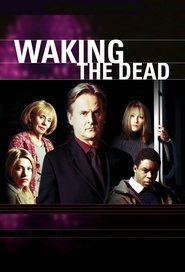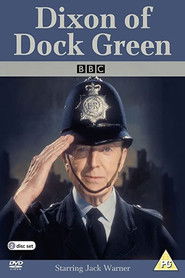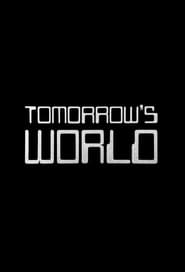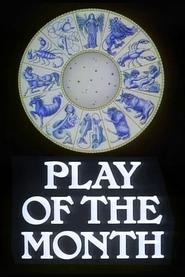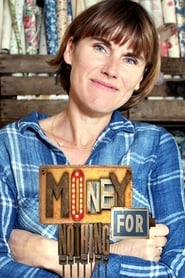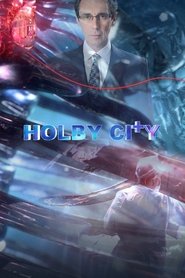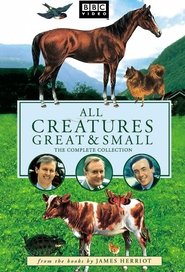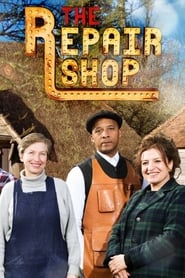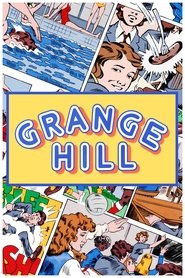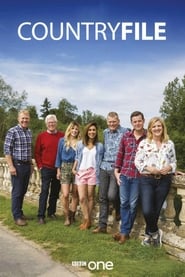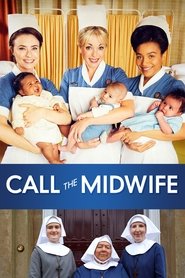Bbc One TV Series - Page 3
-
Waking the Dead
2001
star 7.3A detective team apply new techniques to old crimes as they solve cold cases. -
Dixon of Dock Green
1955
star 5.3Created by Ted Willis. Dixon of Dock Green was a BBC television series following the activities of police officers at a fictional Metropolitan Police station in the East End of London from 1955 to 1976. Some episodes were later remade as a BBC radio series in 2005 and 2006. -
Tomorrow's World
1965
star 6.2Tomorrow's World was a long-running BBC television series on new developments in science and technology. First transmitted on 7 July 1965 on BBC1, it ran for 38 years until it was cancelled at the beginning of 2003. -
BBC Play of the Month
1965
star 5Play of the Month is a BBC television anthology series featuring productions of classic and contemporary stage plays which were usually broadcast on BBC1. Each production featured a different work, often using prominent British stage actors in the leading roles. The series was transmitted from October 1965 to September 1983; the producer most associated with the Play of the Month was Cedric Messina. Some of the 121 episodes are missing from the archives, having been junked in the 1960s and 1970s. Unless stated otherwise, the indication that the play is "lost" is taken from the lostshows.com website page as of 25 May 2013. -
Money for Nothing
2015
star 3.4Entrepreneur Sarah Moore saves things from being dumped and transforms them into valuable pieces, making money for people who had no idea there was cash to be made from their trash. -
Holby City
1999
star 5.7Drama series about life on the wards of Holby City Hospital, following the highs and lows of the staff and patients. -
All Creatures Great and Small
1978
star 7.7All Creatures Great and Small is a British television series, based on the books of the British veterinary surgeon Alf Wight, who wrote under the pseudonym James Herriot. Ninety episodes were aired over two three-year runs. The first run was based directly on Herriot's books; the second was filmed with original scripts. -
The Voice UK
2012
star 6.1A vocal contest reality series featuring people with real talent and great voices. Only the very best singers make it through the the blind auditions, the decisions from the four celebrity coaches are based solely on the voices they hear - and nothing else. -
The Repair Shop
2017
star 6.7The Repair Shop is a workshop of dreams, where broken or damaged cherished family heirlooms are brought back to life. Furniture restorers, horologists, metal workers, ceramicists, upholsterers and all manner of skilled craftsmen and women have been brought together to work in one extraordinary space, restoring much-loved possessions to their former glory. -
Friday Night with Jonathan Ross
2001
star 5.8Jonathan Ross's take on current topics of conversation, guest interviews and live music from both a guest music group and the house band. -
Wipeout
1988
star 5.7Wipeout was a British game show based on the original US format that aired on BBC1 from 25 May 1994 to 3 December 2002. The show was originally hosted by Paul Daniels and held in London from 1994 to 1997, then Bob Monkhouse took over after moving to Manchester from 1998 to 2002. -
Dad's Army
1968
star 7.4Introducing the Walmington-On-Sea home guard. During WW2, in a fictional British seaside town, a ragtag group of Home Guard local defense volunteers prepare for an imminent German invasion. -
Impossible
2017
star 5.5Quiz show in which the 30 contestants competing across the series must avoid giving impossible answers to give themselves a chance of winning £10,000. -
Grange Hill
1978
star 6.5Children's drama series following the lives of students and teachers at Grange Hill comprehensive school. -
Nationwide
1969
star 3.5Nationwide was a BBC News and current affairs television programme which ran from 9 September 1969 to 5 August 1983. It was broadcast on BBC One each weekday following the early evening news. It followed a magazine format, combining political analysis and discussion with consumer affairs, light entertainment and sports reporting. It began on 9 September 1969, running between Tuesdays and Thursdays at 6.00pm, before being extended to five days a week in 1972. From 1976 until 1981 the start time was 5:55pm. The final edition was broadcast on 5 August 1983, and the following October it was replaced by Sixty Minutes. The long-running Watchdog programme began as a Nationwide feature. The light entertainment was quite similar in tone to That's Life!. Eccentric stories featured skateboarding ducks and men who claimed that they could walk on egg shells.. Richard Stilgoe performed topical songs. -
Question Time
1979
star 5.1This topical debate series based on Any Questions? typically features politicians from at least the three major political parties as well as other public figures who answer pre-selected questions put to them by a carefully selected audience. -
Pointless Celebrities
2011
star 6.1Alexander Armstrong and Richard Osman present a celebrity version of the general knowledge quiz in which contestants try to come up with the answers that nobody else could think of. -
Call the Midwife
2012
star 7.5Drama following the lives of a group of midwives working in the poverty-stricken East End of London during the 1950s, based on the best-selling memoirs of Jennifer Worth.
